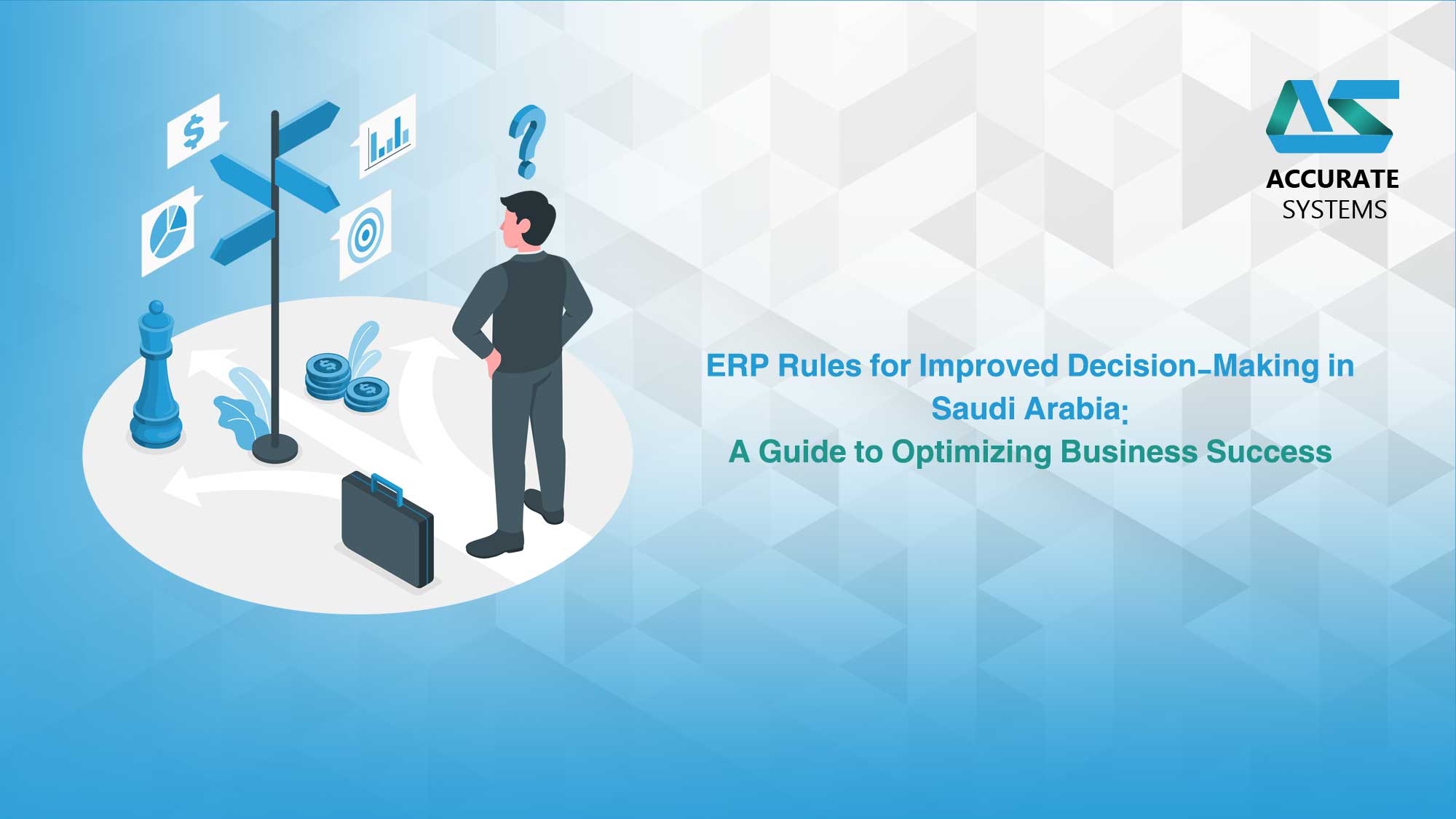In the highly competitive business environment of Saudi Arabia, organizations are increasingly leveraging data-driven insights to make informed decisions and foster growth. A key enabler in this transformation is the adoption of Enterprise Resource Planning (ERP) systems. By establishing effective ERP rules, businesses can access valuable data, optimize processes, and make strategic decisions that lead to greater success.
This guide explores essential ERP rules and how they improve decision-making, with a special focus on ERPNext, a leading ERP platform that helps Saudi businesses achieve these objectives.
Key ERP Rules for Enhanced Decision-Making
1. Data Quality Rules
Maintaining high data quality is foundational for effective decision-making. Below are critical ERP rules for improving data quality:
- Data Cleansing and Standardization: Implement rules that ensure data accuracy and consistency by cleansing data, removing duplicates, and standardizing formats. Clean and well-structured data enables more reliable insights.
- Data Validation: Set up rules that validate data inputs at various stages to prevent errors. These rules may involve checks on data type, format, and acceptable value ranges.
2. Workflow Rules
Well-designed workflow rules help streamline processes and minimize errors, allowing for smoother operations:
- Process Automation: Automate repetitive tasks by establishing rules to trigger actions such as approvals, document generation, and record updates. This saves time and reduces manual errors.
- Access Control: Define access control rules to ensure sensitive data is only available to authorized personnel. This enhances data security and mitigates the risk of unauthorized access.
3. Reporting and Analytics Rules
Generating actionable insights from data requires well-crafted reporting and analytics rules:
- Key Performance Indicators (KPIs): Align KPIs with business objectives and create rules for automatic KPI calculation and reporting. This provides decision-makers with clear performance metrics.
- Data Visualization: Implement rules that automatically generate visual representations of data, such as graphs and charts. Visualized data helps decision-makers easily identify trends and patterns, leading to quicker and more informed choices.
4. Integration Rules
For a unified business perspective, ERP systems must integrate with other business applications:
- Data Synchronization: Ensure seamless synchronization between the ERP and other systems, such as CRM, supply chain, and HR, through well-defined data integration rules. This provides a comprehensive view of operations.
- API Integration: Use API rules to facilitate integration with third-party applications, automating data exchange and improving overall system efficiency.
Leveraging ERPNext for Improved Decision-Making in Saudi Arabia
One of the leading ERP platforms that can help Saudi businesses harness the full potential of their data is ERPNext. Known for its open-source flexibility and robust features, ERPNext offers a range of tools designed to improve decision-making.
Key Features of ERPNext That Enhance Decision-Making
- Customizable Dashboards: With ERPNext, businesses can create dashboards that offer real-time visualization of KPIs and other important metrics.
- Advanced Reporting: Generate detailed reports that extract valuable insights from data, helping businesses pinpoint areas for improvement.
- Workflow Automation: Reduce manual interventions by automating workflows, which decreases human error and boosts operational efficiency.
- Integration Capabilities: ERPNext supports seamless integration with other critical business applications, allowing for a holistic view of operations.
- Open-Source Flexibility: As an open-source platform, ERPNext can be tailored to meet the specific needs of businesses, offering high adaptability for Saudi companies.
Benefits of Implementing ERP Rules in Saudi Arabia
By effectively utilizing ERP rules and a robust solution like ERPNext, organizations in Saudi Arabia can experience several key benefits:
- Improved Operational Efficiency: Automation and process optimization reduce manual tasks, freeing up resources for strategic initiatives.
- Increased Profitability: Data-driven decision-making leads to more efficient resource allocation, ultimately improving profitability.
- Competitive Advantage: Companies that leverage data insights can respond more quickly to market changes, positioning themselves ahead of competitors.
Conclusion
Incorporating ERP rules into your business strategy is essential for improving decision-making in today’s data-driven world. By harnessing the capabilities of an advanced ERP solution like ERPNext, organizations in Saudi Arabia can gain valuable insights, streamline operations, and enhance overall performance. With the right ERP rules in place, businesses can drive growth, increase profitability, and maintain a competitive edge in the marketplace.


